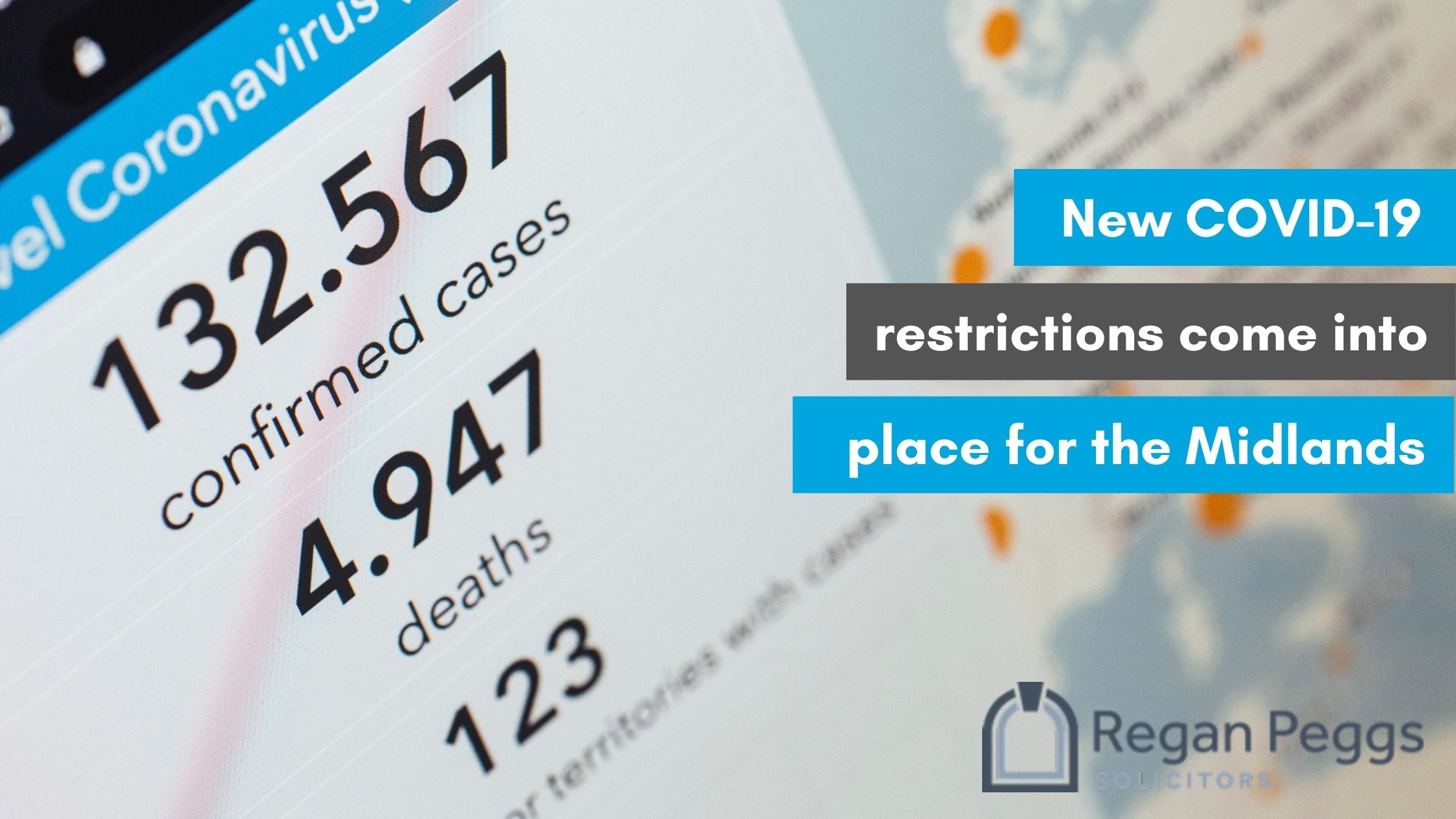
With the uncertainty surrounding the Coronavirus pandemic, it’s understandable that the regulations will undergo twists and turns in an effort to combat the spread of the virus.
Following a particular spike in cases across the Midlands, the government has recently released the Health Protection (Coronavirus, Restrictions) (Birmingham, Sandwell and Solihull) Regulations 2020.
Coming into force on 15th September 2020, the regulations were rolled out initially for Birmingham, Sandwell and Solihull.
Since then, the restrictions have also been updated to include Wolverhampton.
You’ll know if you are impacted by these changes if you pay council tax or business rates to Birmingham, Sandwell, Solihull or Wolverhampton councils.
WHAT ARE THE NEW REGULATIONS?
Following investigations into the spread of the virus, the government is concerned over the level of cases rising.
They are attributing this to the original relaxation of rules, which allowed certain numbers of people to mix within homes again, post lockdown.
This is why new restrictions have been put in place to stop gatherings in private dwellings and gardens altogether for the foreseeable future.
In simple terms, no person can ‘gather’ with someone from another household in a private dwelling.
This includes any living space, such as houseboats.
This also means that for someone who lives outside of Birmingham, Sandwell, Solihull and Wolverhampton, they cannot visit another person’s private home within the protected area.
For residents that live within this protected area, they also not able to visit a private dwelling elsewhere in England.
Although these regulations are specific to England, we are seeing changes to enforce these type of restrictions elsewhere across the UK.
ARE THERE EXCEPTIONS TO THESE REGULATIONS?
Although the restrictions have been tightened, there are also a few exceptions to the rules.
The main ways in which a person can be exempt include:
- at their request, a person outside of another’s household can be present during labour
- attending a close family member’s bedside if you believe they are dying, and if no one else is available
- or if you are fulfilling a legal obligation
According to the guidance, there are other “reasonably necessary” exceptions to the new restrictions including:
- leaving the house for work, including voluntary, or charitable services
- for education or training
- to help someone who requires emergency assistance, including to ensure injury, illness and/or harm is avoided
- facilitating a house move
- when caring for a vulnerable person or parental contact with a child
- and to fulfil childcare duties (this includes registered carers, and now following an additional update, grandparents and those with similar arrangements where people are in ‘linked childcare households)
WHAT ARE THE REPERCUSSIONS IF THE RULES ARE NOT FOLLOWED?
Following these new guidelines, the government has ensured that stronger penalties have been put in place for those who flout the rules.
For individuals, most breaches will be punishable with a fine.
Fixed penalty notices for rule-breakers will be issued starting at £100, then increase as follows:
- in the case of a second fixed penalty notice, receive a fine of £200
- in the case of a third fixed penalty notice, receive a fine of £400
- in the case of a fourth fixed penalty notice, receive a fine of £800
- in the case of a fifth fixed penalty notice, receive a fine of £1,600
- and in the case of the sixth and subsequent fixed penalty notices, receive a fine of £3,200
The Prime Minister has also announced that the maximum penalty will now be increased to £10,000. Further information on this increased fine is set to be revealed in due course.
If you are hit with a fixed penalty notice, but are unsure as to whether you need to pay, it’s sensible to ask advice from a legal expert.
You have rights to challenge the fine in court, and by speaking to an experienced professional, you can therefore have more understanding over your situation.
In other circumstances, an individual may be prosecuted, and the police will make the decision as to whether a fixed penalty notice is issued.
The severity of the regulations will be reviewed every two weeks, where the government will decide if they can be relaxed or tightened further.
But, following the Prime Minister’s address on Tuesday 22nd September, it seems unlikely that these restrictions will be lifted any time soon.
To find out more about the latest guidance, read our recent blog post here, or to speak with a member of our team, please be sure to contact us on 0121 201 3765 or email us at info@reganpeggs.com.
- UK Motoring Offence Stats: A Closer Look at the Numbers - October 26, 2023
- Are Sat Navs Excuses for Motoring Offences? - October 4, 2023
- Is divorce always 50/50? - August 2, 2023

